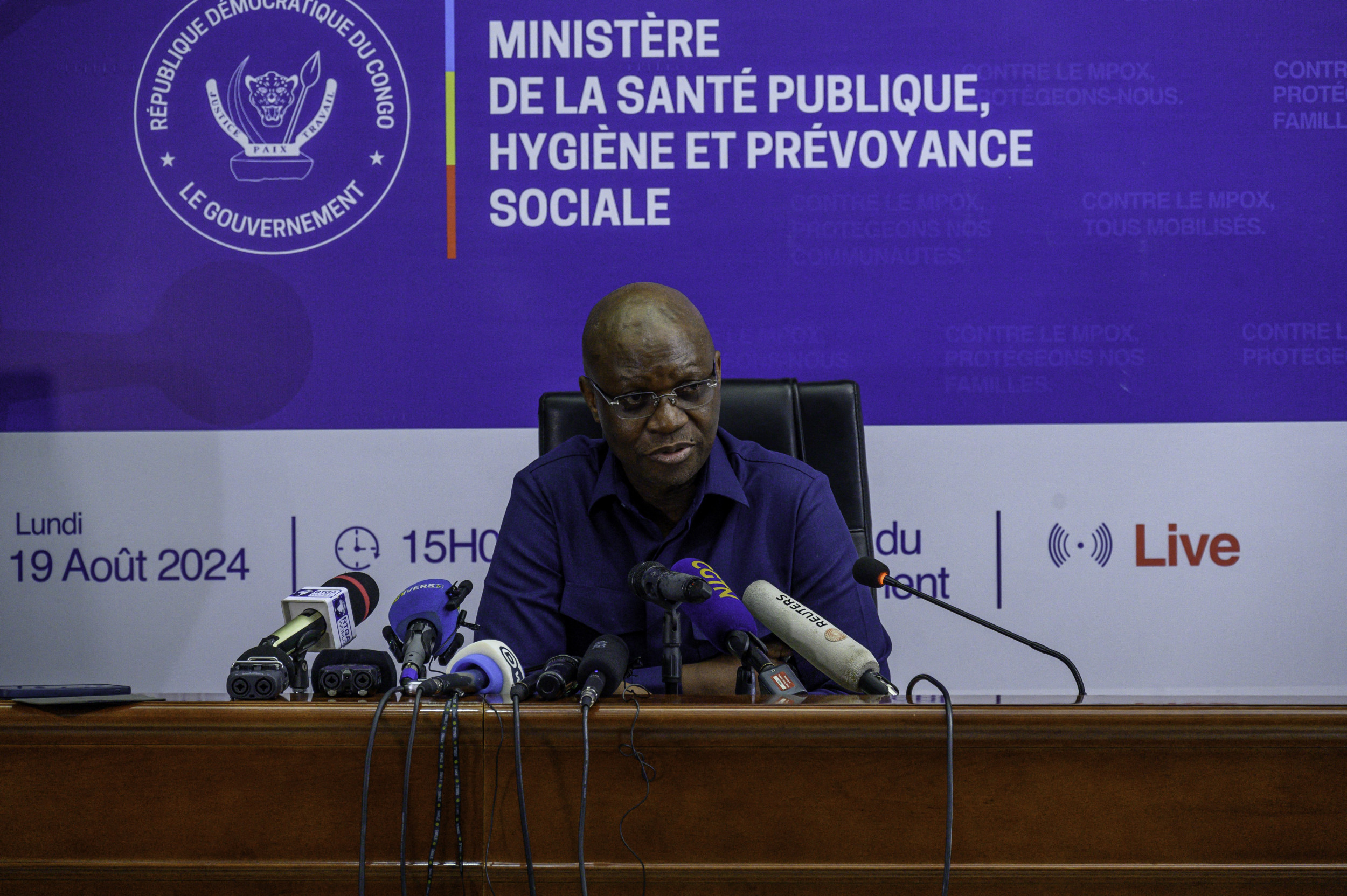Next week, the Congo will receive its first shipment of vaccine doses from the United States to address the rising mpox outbreak, as reported by the country’s health minister during a press conference on Monday.
This urgent need for vaccinations follows the World Health Organization’s (WHO) declaration of mpox, previously known as monkeypox, as a global health emergency after a notable increase in cases across Africa.
The Africa Centers for Disease Control and Prevention also highlighted that mpox has evolved into a public health crisis, citing over 500 related deaths in the region.
WHO director-general Tedros Adhanom Ghebreyesus expressed concern, stating, “The potential for further spread within Africa and beyond is very worrying.”

According to the WHO, the monkeypox virus is classified as an orthopoxvirus that leads to mpox symptoms, which resemble but are less severe than smallpox. It’s a zoonotic disease, meaning it can be transmitted from animals to humans, typically in areas near tropical rainforests. It can spread between humans through bodily fluids, skin lesions, respiratory droplets, and contaminated objects.
So far this year, over 17,000 mpox cases and 500+ deaths have been reported globally, with the Congo accounting for about 96% of these figures.
With an already strained healthcare system, the outbreak is compounding existing challenges in the Congo. Vaccines remain critically scarce across the continent, and Health Minister Roger Kamba noted the need for approximately 3 million doses.
“We are talking about a continental emergency,” Kamba asserted during the press briefing.
To combat this health crisis, the U.S. government is stepping in with an additional $17 million to bolster mpox response efforts in Central and Eastern Africa. They are set to donate 50,000 doses of mpox vaccines, with the first batch arriving next week. Japan has also committed to providing vaccines, although details are still pending.
Another concerning development is the identification of a new mpox variant in the Congo, which may be more transmissible than previous strains. Last week, Sweden reported its first case of this variant, but it’s expected that only minor, imported cases will emerge.
This new variant exhibits milder symptoms and alters lesion locations, now appearing on the genitals rather than the chest, hands, and feet, making it harder to identify. Since mpox spreads primarily through close, skin-to-skin contact, this poses a higher risk of undiscovered transmissions.
This isn’t the first instance of mpox being labeled a global threat. The WHO declared a similar emergency in 2022, when the virus spread to 70 countries, but with a mortality rate of less than 1% among those infected.
Although the CDC reports that the risk of mpox spreading in the U.S. is “very low,” they recommend that individuals who have had mpox or are fully vaccinated have protection against both variants. To further protect yourself, the CDC advises:
- Avoid close contact with anyone displaying mpox symptoms, particularly skin lesions around the genitals.
- Steer clear of wild animals in regions where mpox occurs.
- Minimize contact with contaminated individuals and materials like bedding or clothing used by sick individuals.
